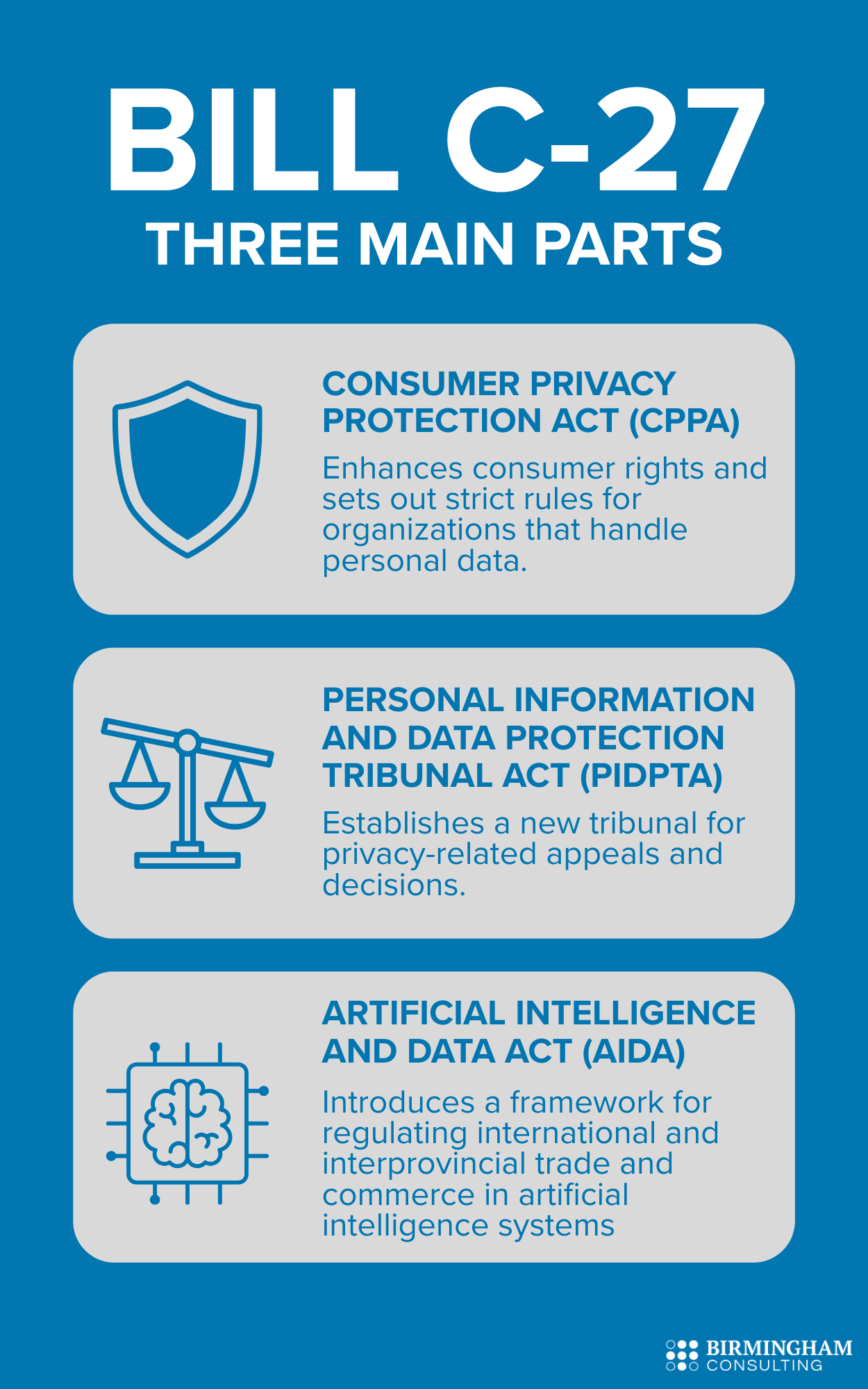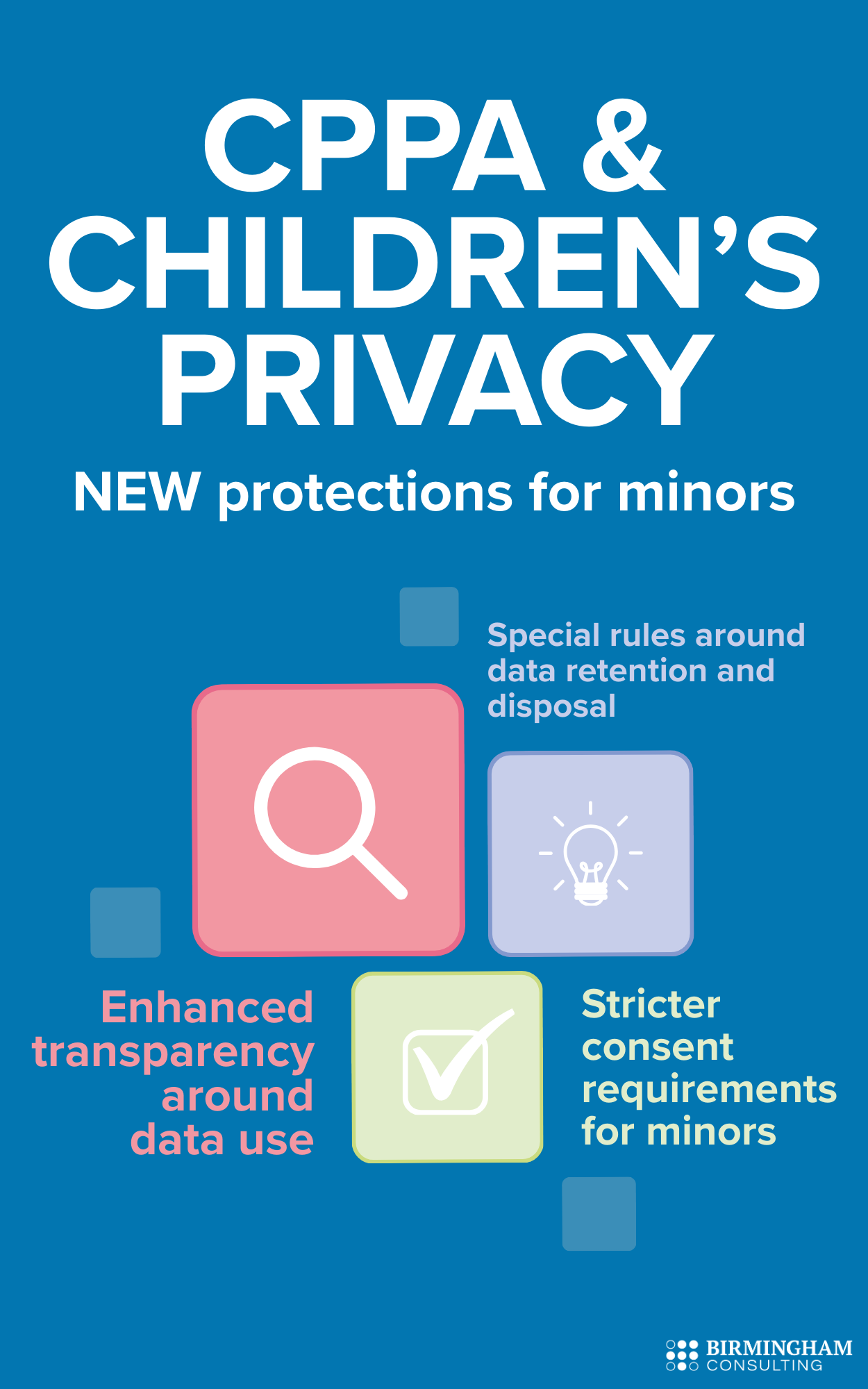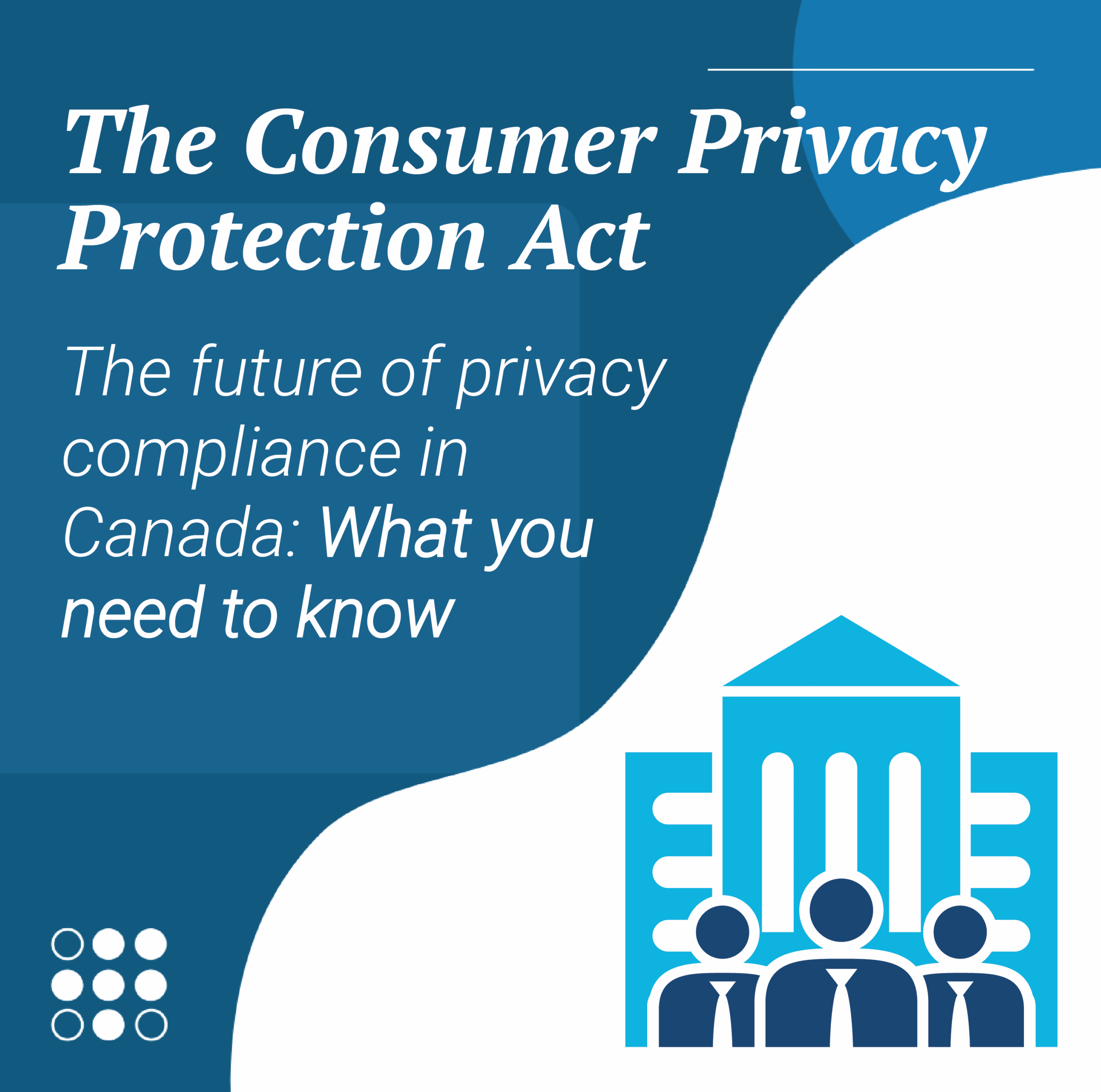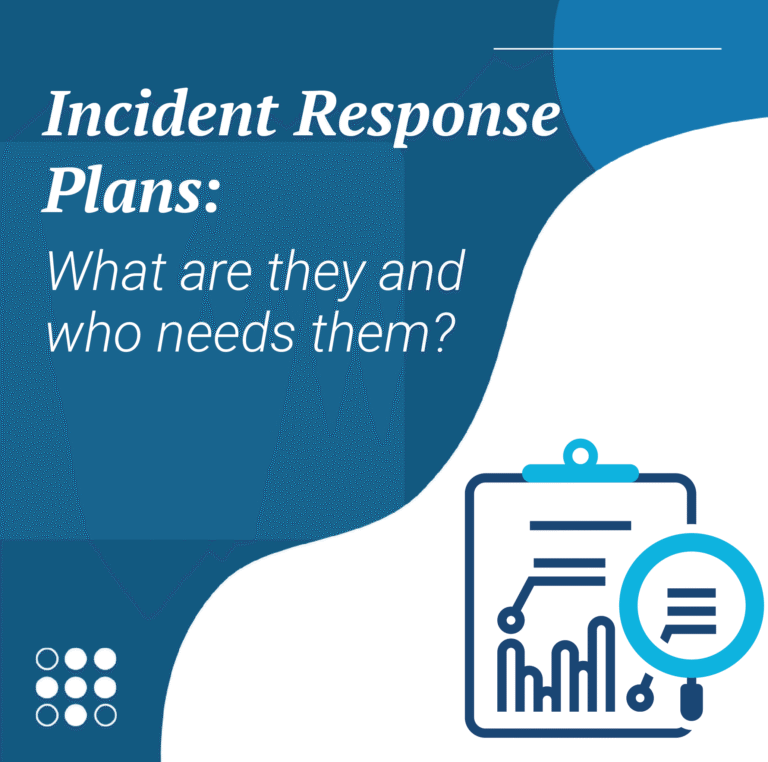The CPPA and the Future of Privacy Compliance in Canada: What You Need to Know
In today’s data-driven world, privacy isn’t just a regulatory issue—it’s a fundamental aspect of consumer trust and brand credibility. With the introduction of proposed Bill C-27, Canada is taking a major step toward strengthening its privacy framework through the proposed Consumer Privacy Protection Act (CPPA). As privacy laws worldwide evolve, the CPPA positions Canada alongside jurisdictions like the European Union and California in championing digital rights.
In this post, we’ll explore what the CPPA is, why it matters, how it differs from previous legislation, and what organizations must do to prepare.
What Is the CPPA? Understanding the Consumer Privacy Protection Act
The Consumer Privacy Protection Act (CPPA) is the centerpiece of Bill C-27, a proposed overhaul of Canada’s federal private sector privacy law. If passed, the CPPA would replace key provisions of the current Personal Information Protection and Electronic Documents Act (PIPEDA).

Bill C-27 consists of three main parts:
- CPPA – Enhances consumer rights and sets out strict rules for organizations that handle personal data.
- Personal Information and Data Protection Tribunal Act (PIDPTA) – Establishes a new tribunal for privacy-related appeals and decisions.
- Artificial Intelligence and Data Act (AIDA) – Introduces a framework for regulating international and interprovincial trade and commerce in artificial intelligence systems
The CPPA is arguably the most impactful of the three, with far-reaching implications for businesses that collect, use, or disclose personal information in Canada.
CPPA and the Shift from PIPEDA: What’s Changing?
While PIPEDA focused on fair information practices, it lacked the enforcement power and specificity that have become standard under laws like the GDPR. The CPPA addresses these limitations by:
- Granting stronger enforcement powers to the Privacy Commissioner of Canada, including the ability to recommend administrative penalties.
- Imposing steep financial penalties, including fines of up to 5% of global revenue or $25 million CAD for serious violations.
- Introducing a private right of action, allowing individuals to sue companies for damages in the event of non-compliance.
With these changes, the CPPA is set to become one of the most robust privacy laws globally.
CPPA and Privacy Management Programs: A New Obligation
One of the CPPA’s most significant additions is the requirement for organizations to implement a privacy management program. This program must document the company’s policies, practices, and procedures for handling personal data.
A strong privacy management program under the CPPA must address:
- How data is collected, used, disclosed, and stored
- How consent is obtained and documented
- Processes for responding to data access, correction, and deletion requests
- Training and accountability measures for staff
This requirement is not just about compliance; it’s about embedding privacy into corporate governance.
CPPA Consent Requirements: Clear, Informed, and Contextual
Under the CPPA, consent remains a cornerstone of data privacy, but the standards have become stricter and more clearly defined. Here’s how the CPPA reshapes consent:
- Clear language: Organizations must explain in plain terms why data is being collected and how it will be used.
- Context-sensitive: Consent must be appropriate to the context and sensitivity of the information.
- Implied consent limits: While some business activities may still rely on implied consent, the burden of proof lies with the organization.
- New exemptions: The CPPA introduces exceptions for certain activities like fraud prevention, internal analytics, and product safety, provided transparency is maintained.
This means companies must carefully design their data collection interfaces and communications to meet the CPPA’s rigorous consent standards.
CPPA and Children’s Privacy: New Protections for Minors
A standout feature of the CPPA is its explicit recognition of minors’ personal information as sensitive data. Unlike PIPEDA, which was vague in this area, the CPPA introduces concrete requirements for handling children’s information, such as:
- Enhanced transparency around data use
- Stricter consent requirements for minors
- Special rules around data retention and disposal
If your organization offers services used by children or collects data about minors, the CPPA will demand a higher level of diligence.
CPPA Individual Rights: Control, Access, and Accountability
The CPPA significantly expands the rights of individuals, building on existing access and correction rights under PIPEDA. Here’s what consumers can expect:
- Right to access their personal data and information about how it is used
- Right to withdraw consent at any time
- Right to request deletion of personal data (“right to be forgotten”)
- Right to data portability, allowing users to move their data between services
- Private right of action in cases of proven privacy breaches
These enhanced rights put greater pressure on companies to maintain transparent, accountable data systems.

CPPA and Data De-identification: What You Can (and Can’t) Do
The CPPA introduces clearer guidance on the anonymization and de-identification of personal information:
- De-identified data is still regulated, particularly when re-identification is reasonably foreseeable.
- Anonymized data, defined more narrowly under the CPPA, is exempt from certain requirements—but must meet strict criteria to qualify.
Organizations using data for research, machine learning, or analytics will need to reassess how they anonymize and manage that data to remain compliant.
CPPA Enforcement: Penalties and Tribunal Review
Under the CPPA, enforcement becomes a serious concern for non-compliant businesses. The Privacy Commissioner gains investigative powers, while the Personal Information and Data Protection Tribunal can impose penalties and hear appeals.
The penalties are significant:
- Up to $10 million CAD or 3% of global revenue for administrative violations
- Up to $25 million CAD or 5% of global revenue for more serious breaches
With the new tribunal structure, enforcement under the CPPA is expected to be faster, more transparent, and more responsive to consumer complaints.
CPPA Legislative Status: Where is it sitting?
As of early 2025, Bill C-27 is still under consideration in Parliament. While it has passed second reading, political maneuvering has delayed final approval. In November 2022, a split vote was approved, allowing MPs to separately consider the controversial AIDA portion without derailing the entire bill. Please refer to the Parliament of Canada for the most up-to-date information on its status.
The CPPA and PIDPTA are widely expected to pass, while AIDA’s fate remains uncertain. However, even with potential delays, the federal government has signaled its commitment to privacy reform, meaning organizations should not wait to prepare.
How to Prepare for CPPA Compliance
So what should organizations do now?
- Conduct a Data Audit: Identify what personal data you collect, where it’s stored, and how it’s used.
- Update Consent Mechanisms: Ensure that all data collection points include clear, compliant language and processes.
- Build a Privacy Management Program: Document your policies and procedures and assign privacy leadership internally.
- Train Your Team: Ensure employees understand the CPPA’s implications and how to support compliance.
- Review Vendor Contracts: Ensure your third-party providers also follow compliant practices.
Solutions like Didomi and other consent management platforms can help streamline compliance and reduce risk by offering customizable tools to manage consent, document preferences, and fulfill data subject requests.
Why the CPPA Matters, More Than Just Compliance
Beyond regulatory pressure, the CPPA is a catalyst for building consumer trust. In an age of data breaches and growing skepticism around digital surveillance, proactive privacy practices give organizations a competitive edge.
Cisco’s 2025 Data Privacy Benchmark Study reveals that 96% of organizations report that the returns on privacy investments significantly outweigh the costs.
This Act isn’t about stopping data collection—it’s about doing it the right way.
The Consumer Privacy Protection Act is set to redefine how businesses across Canada manage personal data. With enhanced individual rights, stronger enforcement mechanisms, and explicit rules around consent and children’s data, the CPPA brings Canada’s privacy laws into the modern age.
Whether you’re a startup, multinational, or nonprofit, compliance will be essential—not only for legal reasons but to remain competitive in a privacy-conscious world. Now is the time to act. Start assessing your data practices, train your teams, and begin preparing for one of the most important regulatory changes in Canada’s digital economy



